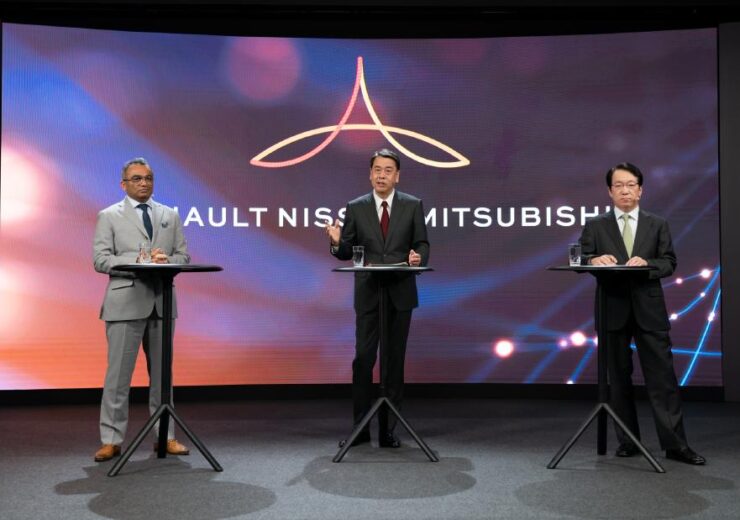By working with common partners, the alliance hopes to cut down costs of batteries by 50% in 2026 and 65% by 2028

The Renault-Nissan-Mitsubishi Alliance has released a common roadmap for its members. (Credit: Nissan Motor Co., Ltd.)
The Renault-Nissan-Mitsubishi Alliance has announced plans to invest €23bn over the next five years in electrification with an aim to produce 35 new electric vehicle (EV) models by the end of this decade.
The alliance, which is made up of the Renault Group, Nissan Motor, and Mitsubishi Motors has also disclosed common projects and measures to expedite and shape their shared future towards 2030 with a focus on the mobility value chain.
A common roadmap has been defined by the alliance on pure-EV and intelligent and connected mobility and for investment sharing to benefit the three-member companies and their customers.
Renault-Nissan-Mitsubishi Alliance chairman Jean-Dominique Senard said: “Among the world’s automotive leaders, the Renault-Nissan-Mitsubishi Alliance is a proven, unique model. For 22 years, we have been building on our respective cultures and strengths for our common benefit.
“Today the Alliance is accelerating to lead the mobility revolution and deliver more value to customers, our people, our shareholders and all our stakeholders.”
The alliance is said to have created a methodology to set the desired level of commonality for each vehicle, integrate various parameters of potential pooling, such as production plants, platforms, powertrains or vehicle segment.
The three automobile companies plan to increase usage of their common platforms in the coming years from 60% to over 80% of their combined 90 models in 2026. This is expected to enable each of them to intensify their focus on their customers’ requirements, their best models and core markets, besides extending innovations across the alliance, at a reduced cost.
By working with common partners, the Renault-Nissan-Mitsubishi Alliance plans to attain real scale and affordability in order to cut down costs of batteries by 50% in 2026 and 65% by the year 2028.
The alliance by continuing with the approach expects to have 220GWh battery production capacity by 2030 for EVs across major production sites around the world.
Renault, Nissan Motor, and Mitsubishi Motors have also revealed a common vision for all-solid-state battery technology (ASSB). Based on its broad expertise and experience, Nissan Motor will steer innovations in the area for the alliance. The partners aim to produce ASSB at an industrial scale by mid-2028.
As per their 2030 roadmap, the alliance intends to roll out its first full software defined vehicle by 2025.
In late 2021, Nissan Motor said that it will invest around $17.6bn through 2026 to fast track its electrification efforts under the Nissan Ambition 2030 strategy.


